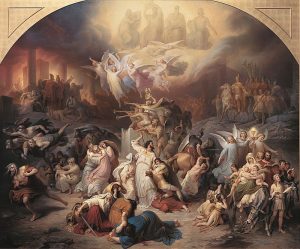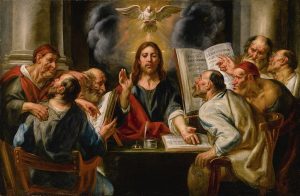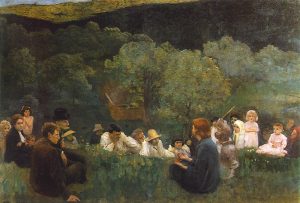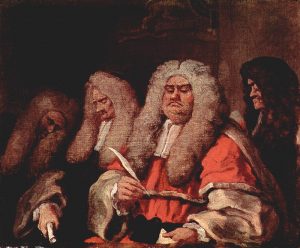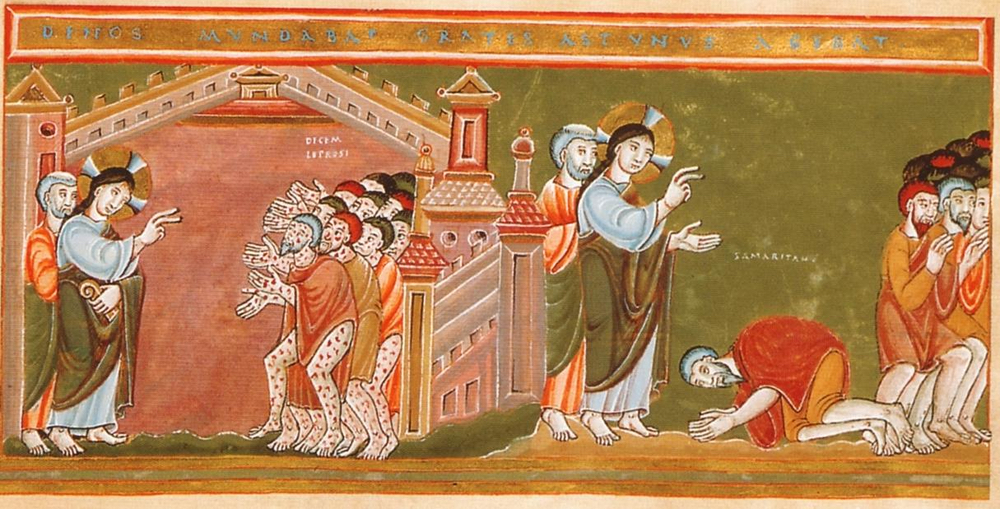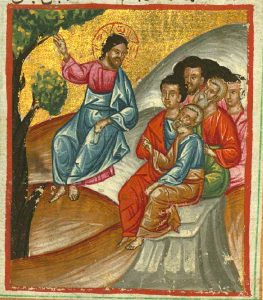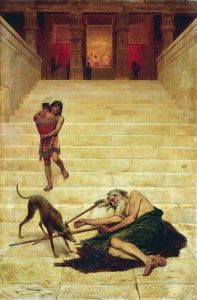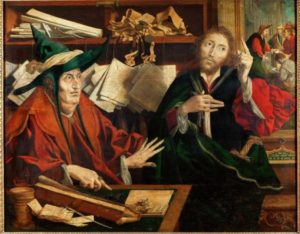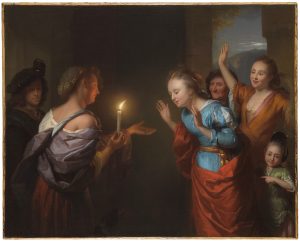Illuminations on the Lectionary readings for Nov. 23, 2025 (Christ the King C)
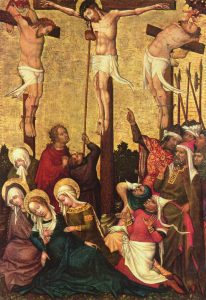
Jesus Crucified Between Two Thieves (c.1430), painting on softwood by Hans von Tübingen (1380-1462). Österreichische Galerie Belvedere, Vienna. (Click image to enlarge.)
First Reading (Both Lectionary Tracks): Jeremiah 23:1-6
The Lectionary year of Luke comes to an end on Sunday, and Jesus’s long journey from Galilee to Jerusalem reaches its end on the cross. Hanging under a sign that sneeringly declares him “King of the Jews,” Jesus is flanked by two criminals and mocked by Roman soldiers. Before we get to this Gospel, though, we hear readings from the prophets, the psalms, and the New Testament letters that imagine the reign of God from King David through to Christ. In this first reading, the prophet Jeremiah speaks fierce words of woe to the leaders of Babylon who were holding Jerusalem and its leaders in exile. A mighty Messiah will come, the prophet foretells, and will reign in glory for Israel and Judah.
Psalm (Track One): Luke 1:68-79 (Canticle 16)
Zechariah, the father of John the Baptist, was a priest in the Temple when God struck him mute for refusing to believe that his elderly wife, Elizabeth, had become pregnant through an angelic visitation. In this canticle based on a passage from Luke’s gospel, his voice returns while he holds and names the infant John. This child, he declares, will be a prophet in the tradition of Abraham and Sarah, who also were blessed with a child in their old age through God’s action. This child, Zechariah proclaims, will be the prophet who will go before Jesus, the Messiah and king, to declare his way.
Psalm (Track Two): Psalm 46
Even when terrible things happen, God is with us, promises this psalm of simple hope and praise. When frightening things happen, even when earthly kingdoms and nations are shaken by horrifying events; when mountains rock and the oceans roar and foam, God remains with us. God doesn’t promise us a world where horrors can’t happen and no one ever suffers. But even in the worst of times, the Psalmist reminds us, God abides, inviting us to take refuge in God’s strength. Our Prayer for Quiet Confidence (BCP p.832) draws from Psalm 46 as it reminds us, “Be still, and know that I am God.”
Second Reading: Colossians 1:11-20
We hear still another message to a people facing trouble and fear in the letter to the Colossians, a persecuted Christian community in what is now Western Turkey, across the Aegean from Greece. These verses urge the Colossians to endure their difficulties with patience and the strength that comes from God’s glorious power. Jesus, through his incarnation as God in human flesh, rescues us from the power of darkness and transfers us into the kingdom of Christ, the author of Colossians assures his flock. Christ is the first of all creation and the head of the body of the church.
Gospel: Luke 23:33-43
It may seem surprising to hear a Gospel about Christ on the cross in November, at the intersection between Pentecost and Advent. But this passage for Christ the King shows us Christ as a completely different kind of king! Jesus is crucified, a horrible form of execution reserved for Rome’s most despised evildoers. He hangs bleeding and in unimaginable pain, while above him is placed a sign meant to mock him by declaring him King of the Jews. Soldiers and a criminal on a nearby cross torment him as a Messiah who can’t save himself. Yet while all this is going on, Jesus shows his love and his true power, quietly inviting a repentant criminal on a cross at his side into a different kind of kingdom, one given for all humanity and for all time.

